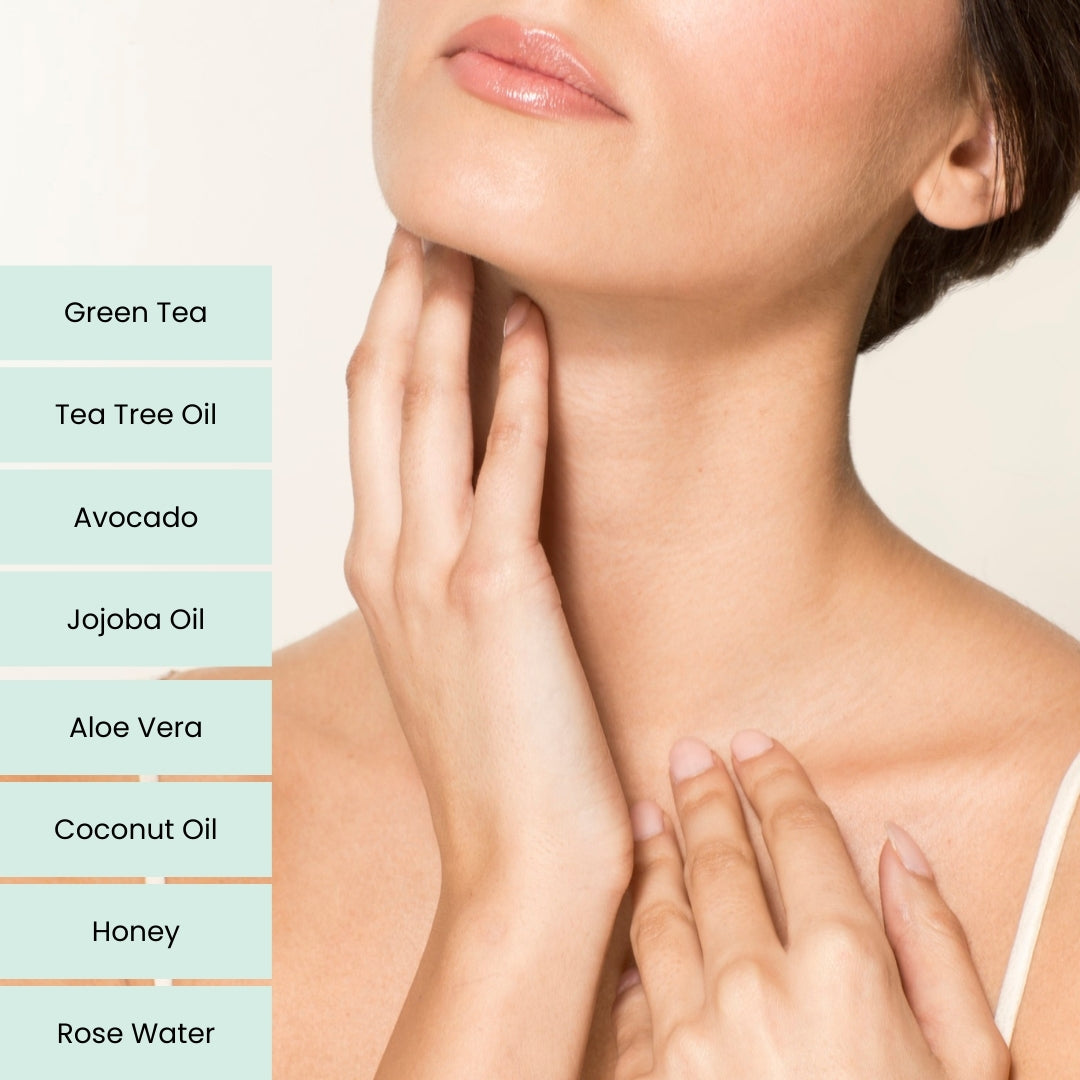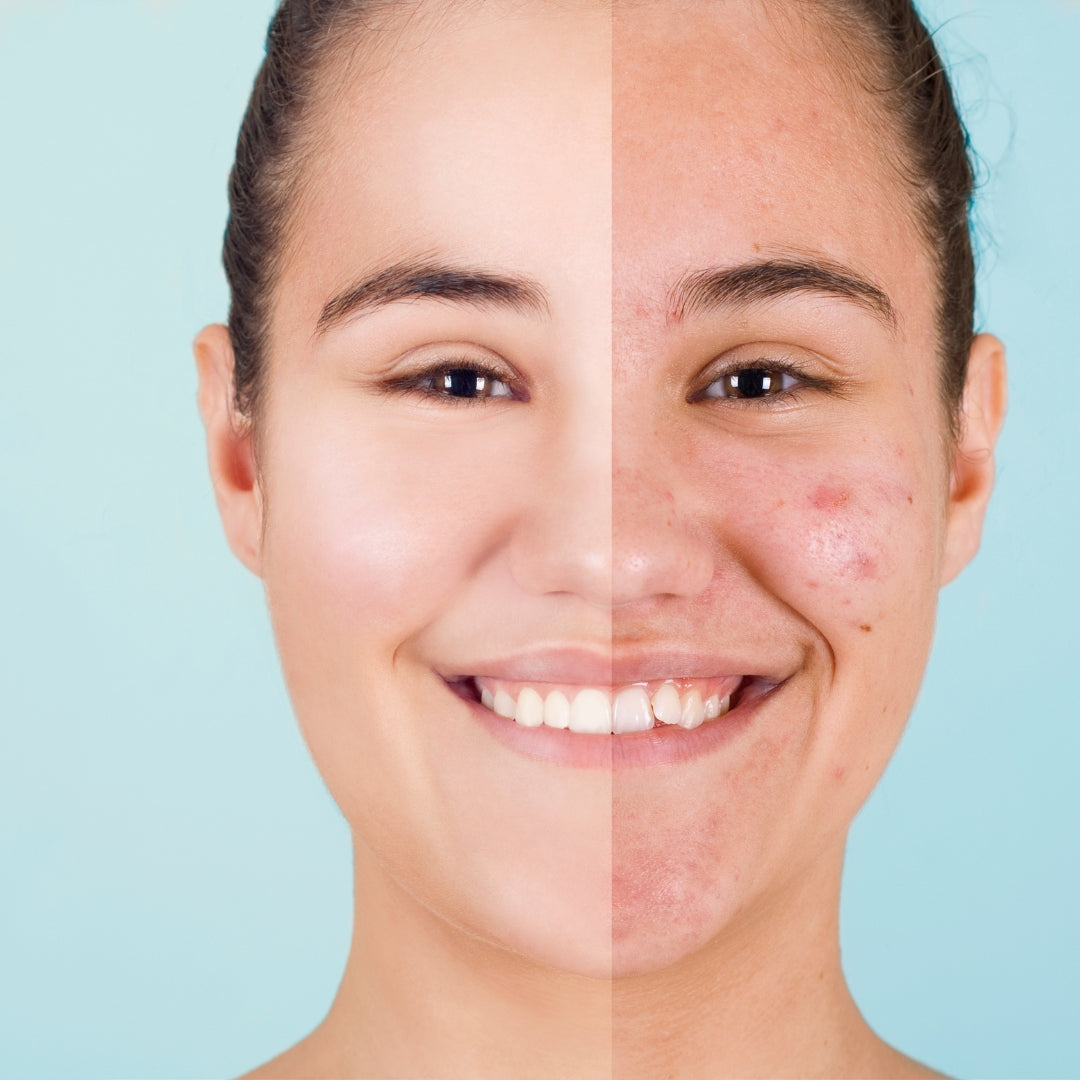8 Natural Ingredients for a Chemical-Free Skincare Routine

In today's world, we’re becoming more conscious about the substances in our skincare products. With chemicals, preservatives, and artificial perfumes being common ingredients in many commercial goods, it's no wonder that so many people experience skin irritation or long-term damage. If you’ve been looking to simplify your skincare routine and adopt a more natural approach, you're not alone. Choosing to go chemical-free is an excellent way to nourish your skin without relying on harsh or harmful ingredients. So, if you're ready to embrace a chemical-free regimen, here are eight all-natural ingredients that can help you achieve healthy, glowing skin.
1. Aloe Vera
Aloe vera is a skincare powerhouse. The natural gel, derived from the aloe vera plant’s leaves, is renowned for its anti-inflammatory properties, making it an excellent remedy for soothing irritated skin. Aloe vera is also incredibly hydrating and helps promote skin healing. It’s often used for treating sunburns, minor cuts, or any kind of skin irritation. Thanks to its rich vitamin, enzyme, and antioxidant content, it nourishes the skin, making it ideal for sensitive skin types and those with conditions like eczema.
How to use it: Simply apply fresh aloe vera gel directly from the plant, or opt for a pure aloe vera gel product. It works wonderfully as both a moisturizer and a soothing face mask.
2. Coconut Oil
Coconut oil has been a staple in beauty routines for centuries—and for good reason. It's packed with fatty acids that deeply hydrate and moisturize the skin. Additionally, coconut oil boasts antibacterial properties, which can be beneficial for those dealing with acne or breakouts. It also acts as a natural cleanser, effortlessly removing makeup and dirt while leaving the skin feeling soft and smooth.
How to use it: You can use coconut oil as a moisturizer, applying it directly to your skin, or use it as a natural makeup remover. However, be cautious if you have oily skin, as coconut oil can be comedogenic (clogging pores).
3. Honey
Honey is a natural humectant, meaning it draws moisture from the air to help keep your skin hydrated. It also possesses antimicrobial properties, which makes it ideal for fighting acne-causing bacteria. On top of that, honey is loaded with antioxidants that protect the skin from harmful environmental stressors, giving your skin a healthy, youthful glow.
How to use it: Apply raw honey directly to your face as a mask, leaving it on for 15-20 minutes before rinsing with warm water. You can also mix honey with other ingredients like yogurt or turmeric for added benefits.
Honey is not only great for hydration but also helps in achieving clear, glowing skin. Ayurveda also offers effective herbal solutions—read 8 Ayurvedic Remedies for Clear and Glowing Skin for more natural skincare secrets.
4. Rose Water
Rose water has been used in skincare routines for centuries due to its soothing properties. It’s perfect for reducing redness, inflammation, and irritation, making it a go-to for people with sensitive skin. Rose water also helps balance the skin’s pH level, tighten pores, and refresh the complexion for a rejuvenated appearance.
How to use it: After cleansing your face, use rose water as a toner. It can also be spritzed throughout the day as a hydrating mist for an instant refresh.
5. Green Tea
Green tea is rich in antioxidants, especially polyphenols, which have powerful anti-inflammatory and anti-aging benefits. These antioxidants protect your skin from premature aging and damage caused by environmental stressors. Additionally, green tea is known to calm irritated skin and reduce puffiness, especially under the eyes.
How to use it: Brew green tea and allow it to cool before applying it to your skin using a cotton pad. You can also incorporate green tea extracts into creams and lotions. For an extra treat, you can make a DIY face mask by mixing green tea with honey or aloe vera.
6. Jojoba Oil
Jojoba oil is often compared to the natural oils our skin produces, which makes it an excellent choice for balancing oil production. It's a deeply moisturizing yet lightweight oil, making it suitable for all skin types, including oily and acne-prone skin. Jojoba oil has anti-inflammatory properties, making it especially helpful for calming irritated or red skin.
How to use it: Massage a few drops of jojoba oil onto your face after cleansing. It can be used on its own or added to your favorite moisturizer for an extra boost of hydration.
7. Tea Tree Oil
Tea tree oil is well-known for its powerful antimicrobial properties, which make it a popular ingredient for treating acne. It helps fight the bacteria that can clog pores and lead to breakouts. Additionally, tea tree oil has soothing qualities, which can help calm irritated skin and reduce inflammation. It’s especially effective for people with oily skin.
How to use it: Dilute tea tree oil with a carrier oil, such as jojoba or coconut oil, and apply it directly to blemishes or other breakout-prone areas. Avoid using tea tree oil undiluted, as it can cause irritation.
8. Avocado
Avocados aren’t just great for your health; they’re fantastic for your skin as well. Packed with vitamins, healthy fats, and antioxidants, avocado works wonders to hydrate and nourish the skin. It’s particularly beneficial for dry or mature skin since it helps restore moisture and supports the skin’s natural elasticity.
How to use it: Mash up an avocado and apply it as a face mask for 10-15 minutes. For added benefits, you can mix avocado with honey or yogurt to create a super hydrating mask.
Healthy skin and hair go hand in hand. While nourishing your skin naturally, don’t forget to avoid 7 Common Hair Mistakes and How to Fix Them to maintain strong, beautiful hair.
Conclusion
Incorporating these natural ingredients into your skincare routine can make a significant difference in the health and appearance of your skin. The best part is that they are free from harsh chemicals, artificial fragrances, and additives, offering a more holistic and gentle approach to skincare. Whether you're looking to soothe irritated skin, hydrate, or fight acne, these natural ingredients provide safe, effective solutions without the worries of harmful chemicals. So, why not make the switch to a more natural skincare routine today? Your skin will thank you!
FAQs
1. Can I use these ingredients every day?
Yes, many of these natural ingredients can be used daily. However, it’s essential to listen to your skin. If you experience irritation or dryness, reduce usage and give your skin time to adjust.
2. Will coconut oil clog pores?
Coconut oil can be comedogenic for some people, especially those with oily or acne-prone skin. It’s a good idea to do a patch test first before incorporating it regularly into your skincare routine.
3. How do I store these natural ingredients?
Most natural ingredients, like aloe vera and coconut oil, should be stored in a cool, dry place. Fresh aloe vera gel should be refrigerated and used within a week to ensure freshness.
4. Are these ingredients suitable for all skin types?
These ingredients are generally safe for most skin types, but it’s always wise to patch-test new ingredients before fully integrating them into your routine—especially if you have sensitive skin.
5. Can I mix these ingredients with other products in my routine?
Yes, you can! These natural ingredients can be seamlessly incorporated with other skincare products, like moisturizers or serums. Just be mindful of how your skin reacts when combining products, as some combinations may cause irritation.

Reviewed By
Dr. Sapna Kangotra
Senior Ayurveda Doctor





Comments